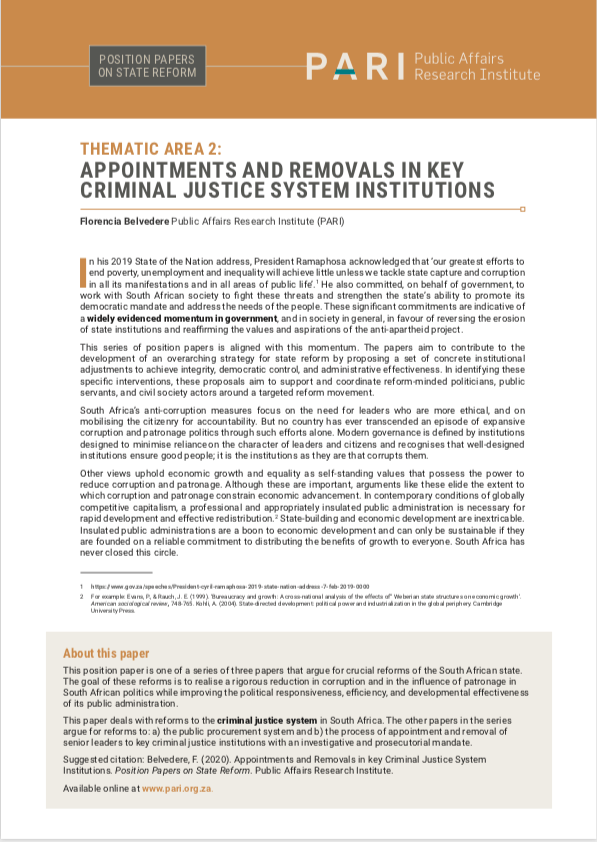
This position paper is one of a series of three papers that argue for crucial reforms of the South African state. The goal of these reforms is to realise a rigorous reduction in corruption and in the influence of patronage in South African politics while improving the political responsiveness, efficiency, and developmental effectiveness of its public administration.
This paper focuses on the second thematic area of the series – reforming the processes of appointment and removal of senior leaders to key criminal justice institutions. The legal framework that governs the appointment to and removal of senior personnel from institutions of the criminal justice system that have an investigative and prosecutorial mandate has contributed to a blurring of the political-administrative divide and has severely constrained the independence that these institutions require to contain corrupt practices. The paper proposes a series of reforms to the appointment and removal processes for senior leaders in the National Prosecuting Authority (NPA), the South African Police Service (SAPS), the Directorate for Priority Crime Investigation (DPCI), and the Independent Police Investigative Directorate (IPID) which aim to improve the transparency and rigour of these processes, to better guarantee their independence from partisan politics, while ensuring that the President as head of state, and the executive, retain their Constitutional powers to appoint without these powers becoming merely administrative or ceremonial in character.



